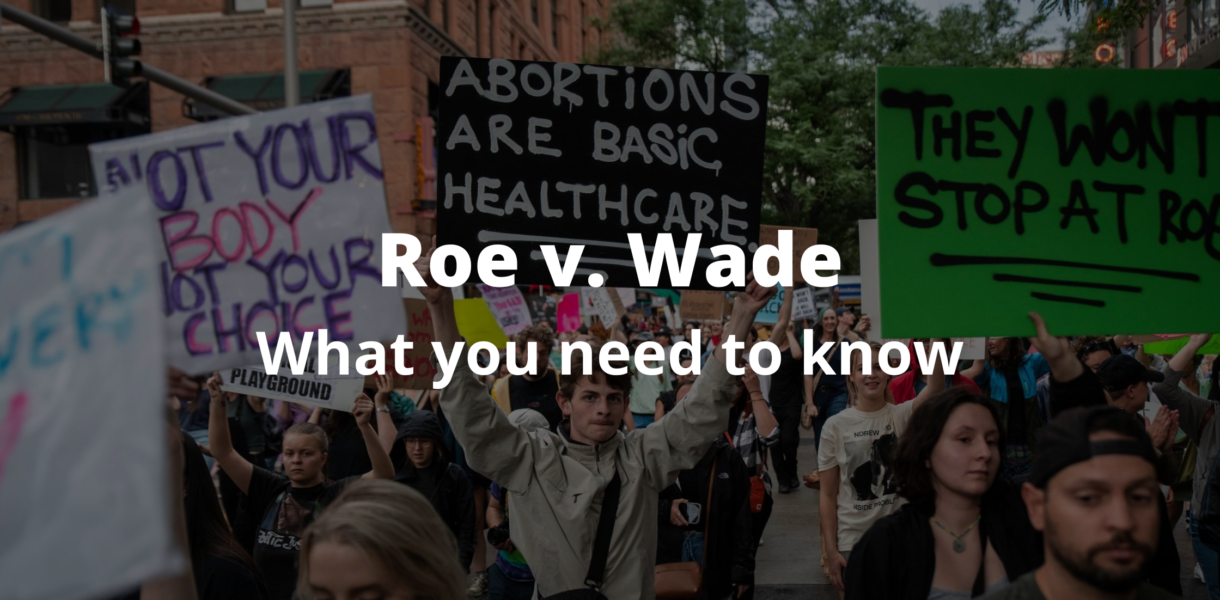June 24, 2022 – The United States Supreme Court overturns Roe v. Wade. This news is not only devastating for women, but all for menstruating people. At MM, we understand the emotions this decision causes for our readers, as we are experiencing similar reactions to this devastating news. We hope to serve as a source of reliable information and comfort for anyone who is affected by the Supreme Court’s decision.
What is Roe v. Wade?
Roe v. Wade is the 1973 Supreme Court case that led to the protection of a person’s right to choose whether or not to terminate a pregnancy. This decision made state abortion bans unconstitutional, which resulted in accessible and safe abortion care for most individuals in the United States. You can read more about the specifics of the Roe v. Wade ruling here. Many conservative states placed incredibly harsh restrictions on abortion while Roe v. Wade was still in effect, such as restricting abortion later than 6 weeks after conception. Read more about the wave of abortion bans in 2018 here.
Did Roe v. Wade only protect abortion rights?
According to the National Women’s Law Center, the 1973 Roe v. Wade ruling solidified the “right to privacy.” This is supported by the right to liberty, protected by the Fifth and Fourteenth Amendments. Consequently, this upholds the right to same sex marriage, the right to contraception (birth control) and the right to choose how to raise one’s child. Now that Roe v. Wade has been overturned, all of these rights are threatened.
What does this mean for me?
Individuals who cannot afford to travel to another state to receive care will face the harshest consequences of the overturn. In some cases, people who become pregnant will be denied access to an abortion, whether they are seeking one for medical reasons or simply because they do not want to have a baby. The decision to protect or deny your right to an abortion is now up to each state. Individuals and medical providers risk prosecution if an abortion is performed in an abortion hostile state.
How does Joe Biden’s Executive Order protect abortion?
July 8th, 2022 – Joe Biden signs an executive order to protect reproductive rights.
Joe Biden’s recent executive order has directed the Secretary of Health and Human Services to protect medication abortion, protect access to contraception and protect sensitive health information. You can read more about the President’s executive order here.
Where can I go for abortion information?
If you or someone you know is seeking an abortion, resources can be found here. Please keep in mind it is unfortunately our own burden to protect our privacy when seeking reproductive medical attention. Many are chosing to keep abortion pills in their regular stock of medical supplies, in case they or someone they know should need them. Find more information about ordering “Plan C” pills here.
What can I do to protect reproductive rights?
Registering and researching to vote in November for state and local officials who have vowed to protect your reproductive rights is the best way to take action. Check your voter registration status here.
Donating to a local abortion fund is a fantastic way to directly provide resources to folks who may have to travel to receive an abortion. Here are just a few collecting donations right now.
Reproductive rights are directly connected to MM’s objective to increase bodily autonomy for people with a uterus. We are dedicated to fighting for your right to build the life you want despite your ability to reproduce. We will always stand up for your right to choose.
For more updates on all things Mission Menstruation, follow our socials and stay tuned for more blog posts!
Instagram @missionmenstruation
Twitter @msnmenstruation
Facebook Mission Menstruation



